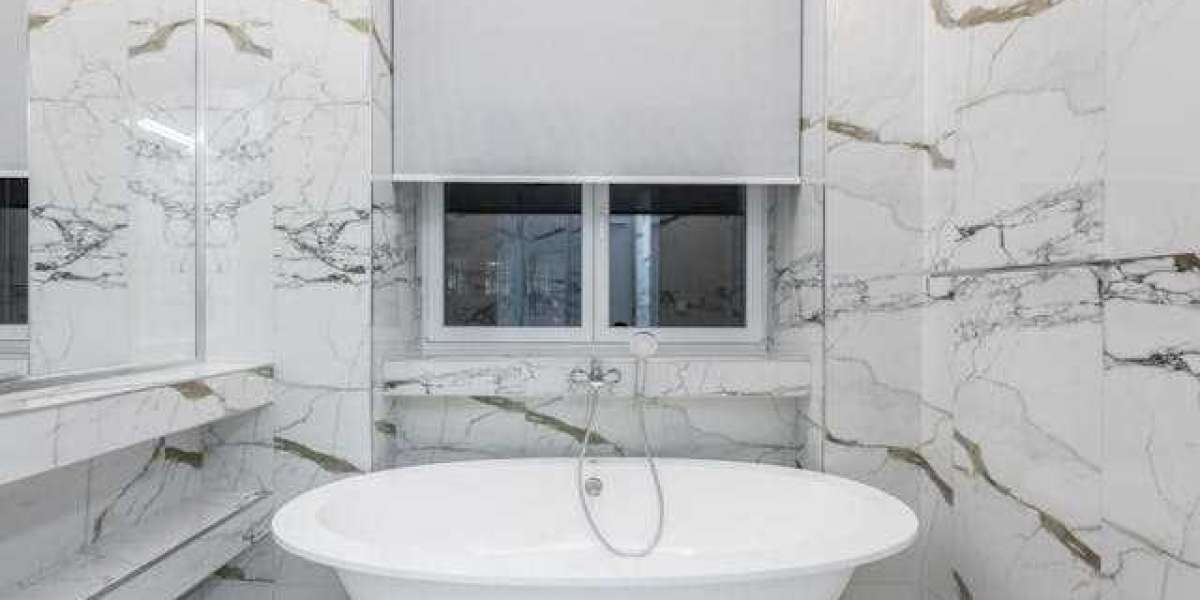When considering a bathroom renovation project, excitement often takes center stage as you imagine a sleek, modern space designed to meet your needs. However, jumping in without proper preparation can lead to costly mistakes and frustrating delays. To ensure a smooth and successful renovation, it’s crucial to ask yourself and your contractor key questions before starting. This blog post highlights the essential questions that will guide you through the planning process, helping you create the bathroom of your dreams while avoiding common pitfalls.
1. What Is My Budget for This Project?
Your budget serves as the foundation for your bathroom renovation. Knowing how much you’re willing to spend will help you prioritize features and prevent overspending. Be sure to include a buffer of 10-20% for unexpected expenses, such as plumbing issues or material upgrades.
Tips for Budget Planning:
- Get multiple quotes from contractors.
- Research the costs of fixtures, tiles, and other materials.
- Allocate funds for labor, permits, and design fees if applicable.
2. What Is the Purpose of the Renovation?
Understanding your primary motivation for renovating your bathroom can shape your decisions. Are you updating the space for resale value, improving functionality for your family, or simply creating a luxurious retreat? Clearly defining your goals ensures the final result aligns with your needs.
Purpose Categories to Consider:
- Functionality: Add storage, improve lighting, or enhance accessibility.
- Aesthetics: Modernize the look with updated finishes.
- Energy Efficiency: Incorporate water-saving fixtures and LED lighting.
- Resale Value: Opt for timeless designs that appeal to potential buyers.
3. What Is My Timeline?
Setting a realistic timeline for your bathroom renovation is essential to avoid disruptions to your daily routine. Discuss timelines with your contractor, keeping in mind that factors like material delivery and unforeseen issues may cause delays.
Key Timeline Factors:
- Availability of materials.
- Contractor scheduling.
- The complexity of the renovation (e.g., structural changes or custom features).
4. What Style and Design Do I Want?
A clear vision of your preferred style and design will simplify the selection process for fixtures, tiles, and finishes. Browse magazines, online platforms like Pinterest, or showroom displays to gather inspiration. Consider how the design will complement the overall aesthetic of your home.
Popular Bathroom Styles:
- Modern: Minimalist designs with clean lines and neutral colors.
- Farmhouse: Rustic elements like shiplap walls and vintage fixtures.
- Spa-inspired: Natural materials, calming tones, and luxurious features.
- Traditional: Timeless elegance with intricate details and classic finishes.
5. How Will the Layout Be Optimized?
A functional layout is key to a successful bathroom renovation. Consider whether your current layout works or if changes are needed to enhance flow and usability. Keep in mind that relocating plumbing fixtures can significantly increase costs.
Layout Considerations:
- Do you need more counter space or storage?
- Would a double vanity better suit your needs?
- Should the shower or bathtub be repositioned for convenience?
- Can natural light be maximized with larger windows or skylights?
6. What Materials and Fixtures Should I Choose?
The materials and fixtures you select will impact both the aesthetics and durability of your bathroom. Choose items that align with your style while offering practicality and longevity.
Factors to Consider When Choosing Materials:
- Durability: Opt for moisture-resistant and easy-to-clean materials.
- Maintenance: Avoid high-maintenance surfaces if you prefer low upkeep.
- Quality: Invest in high-quality fixtures for long-term use.
Popular choices include porcelain tiles for flooring, quartz countertops for vanities, and brushed nickel or matte black finishes for hardware.
7. Do I Need to Address Any Structural or Plumbing Issues?
Before diving into cosmetic upgrades, ensure that the structural integrity and plumbing of your bathroom are in good condition. Neglecting these can lead to costly repairs down the line.
Common Structural Concerns:
- Water damage or mold in walls or flooring.
- Outdated or inefficient plumbing systems.
- Insufficient ventilation leading to humidity issues.
Consult a professional bathroom renovation Oakville to assess and address these issues during the planning stage.
8. What Storage Solutions Will Be Included?
A well-designed bathroom incorporates adequate storage for toiletries, towels, and cleaning supplies. Determine your storage needs and explore creative solutions to maximize space.
Storage Ideas:
- Floating shelves for a modern look.
- Built-in niches in the shower for convenience.
- Vanity drawers with organizers for smaller items.
- Over-the-toilet cabinets for additional space.
9. Will Energy Efficiency Be a Priority?
Sustainability is a growing priority for homeowners, and incorporating energy-efficient features can save you money on utility bills while reducing your environmental impact.
Energy-Efficient Features to Consider:
- Low-flow toilets and faucets to conserve water.
- LED lighting for reduced energy consumption.
- Insulated windows to retain heat and prevent drafts.
- Smart thermostats for underfloor heating systems.
10. Who Will Handle the Renovation?
Deciding whether to hire a professional contractor or tackle the renovation as a DIY project depends on the scope of work and your skill level. While DIY may save money, certain tasks like plumbing and electrical work are best left to licensed professionals.
Choosing the Right Contractor:
- Check reviews and ask for references.
- Ensure they are licensed and insured.
- Discuss warranties for workmanship and materials.
11. Do I Need Permits for This Renovation?
Permits may be required for certain aspects of your bathroom renovation, especially if structural changes or major plumbing and electrical work are involved. Consult your contractor or local building authority to ensure compliance with regulations.
Why Permits Are Important:
- They ensure the work meets safety codes.
- They protect you from potential legal issues during resale.
- They provide documentation for insurance purposes.
12. How Will I Minimize Disruptions During Renovation?
A bathroom renovation can be disruptive, especially if it’s the only bathroom in your home. Plan ahead to minimize inconvenience.
Tips to Reduce Disruptions:
- Arrange for temporary facilities if needed.
- Schedule work during a time when the bathroom is less frequently used.
- Communicate clearly with contractors about working hours and cleanup.
13. What Will the Long-Term Maintenance Look Like?
Finally, think about the long-term maintenance of your new bathroom. Choose materials and finishes that are easy to clean and maintain to ensure your bathroom stays in excellent condition for years to come.
Low-Maintenance Choices:
- Stain-resistant countertops.
- Mold-resistant grout.
- Durable, scratch-resistant flooring.
Conclusion
Planning a affordable bathroom renovation Oakville requires careful thought and preparation. By asking the right questions, you’ll ensure that every decision aligns with your vision, budget, and practical needs. Whether you’re creating a luxurious retreat or upgrading for functionality, these questions will guide you toward a successful and satisfying renovation experience.
Remember, the key to a stress-free renovation lies in thorough research, clear communication, and partnering with the right professionals. So take the time to plan, and soon you’ll be enjoying the bathroom of your dreams!







